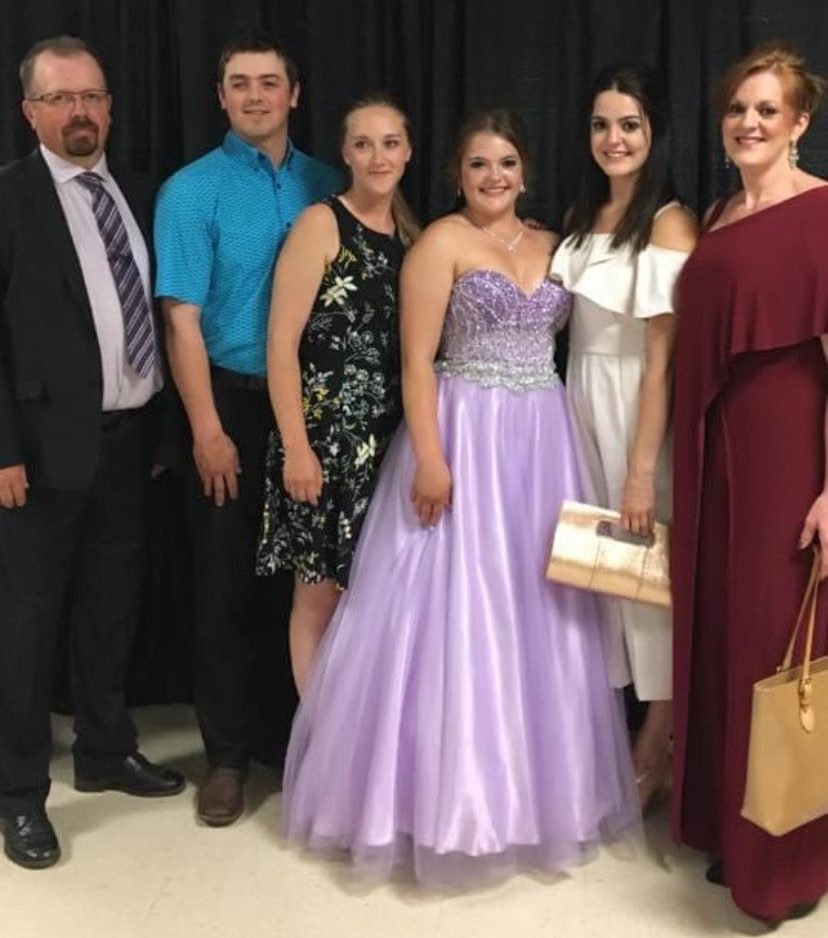A woman from Lamont County is still experiencing the physical and emotional effects of COVID-19, despite being cleared of still having the novel coronavirus in her system nearly four months ago.

Deb Eleniak and four other immediate family members were diagnosed with COVID-19 in July, after each one began to exhibit symptoms.
“We don’t know who got it first. We don’t know where they got it from,” Eleniak said. “Alberta Health Services can’t trace it back.”
Eleniak’s husband, daughter, son and daughter-in-law all tested positive. Her one other daughter, who lives in Camrose, did not contract COVID-19.
Most of the family experienced fever-like symptoms for about four days, but Deb said her own symptoms lasted for about two weeks.
COVID “long-haulers”
Most of the family no longer exhibits any COVID-19 symptoms or effects, but Deb still isn’t back to normal.
“I get shortness of breath. I have stabbing chest pain. I have tingling in my arms and legs that feels like there is something crawling on you,” Eleniak said, speaking in a raspy voice. “I haven’t heard my normal voice since June.”

Get daily National news
She’s part of a small group of people known as COVID “long haulers” — still experiencing chronic problems but unable to pinpoint why.
Eleniak said joining a “COVID long hauler” support group on Facebook has been extremely comforting during a search for answers.
She also has lupus — an autoimmune disease that occurs when the body’s immune system attacks its own tissues and organs, causing inflammation to the joints, skin, kidneys, blood cells, brain, heart and lungs, to name a few.
Eleniak returned to work in October — but can only be there for half the day. She said she sleeps for hours afterwards.
“You just kind of wake up and see how the day goes,” she said. “I just don’t feel myself. I miss me really bad.”
Lack of community support leads to social ostracization
The lasting effects of COVID-19 go beyond the physical.
Eleniak, who lives in the village of Chipman, said the family felt ostracized after word of their diagnosis spread around their community east of Edmonton.
“We saw negative posts on social media. What hurt the most was when people said ‘That family deserves jail time and should be fined.’
“We didn’t do anything wrong. We got sick.”
Eleniak said after her daughter Kelsey had finished her isolation period and was cleared by AHS to leave the house, she got a phone call from an RCMP officer while she was out.
“The officer said he got a call that told him Kelsey was ‘out spreading COVID,'” Eleniak said. “I spoke with the constable later on, but after that I was scared to leave the house. I didn’t want the same thing to happen.”
Kelsey said she was nervous to go back to school in September — worried that someone would know she had been diagnosed with COVID-19.
The family said they still feel anxious when they are out in the community.
“It’s still there. Depending on where you go, you get the looks from people. People that take two steps back from you, walk away from you,” Eleniak said.
“The stigma of COVID can be just as bad or worse as the virus itself.”
Eleniak said it’s added stress to an already difficult health battle.
“You don’t know who has COVID-19 and you don’t know who’s going to get it. An ounce of human kindness goes a very long way.”








Comments
Want to discuss? Please read our Commenting Policy first.